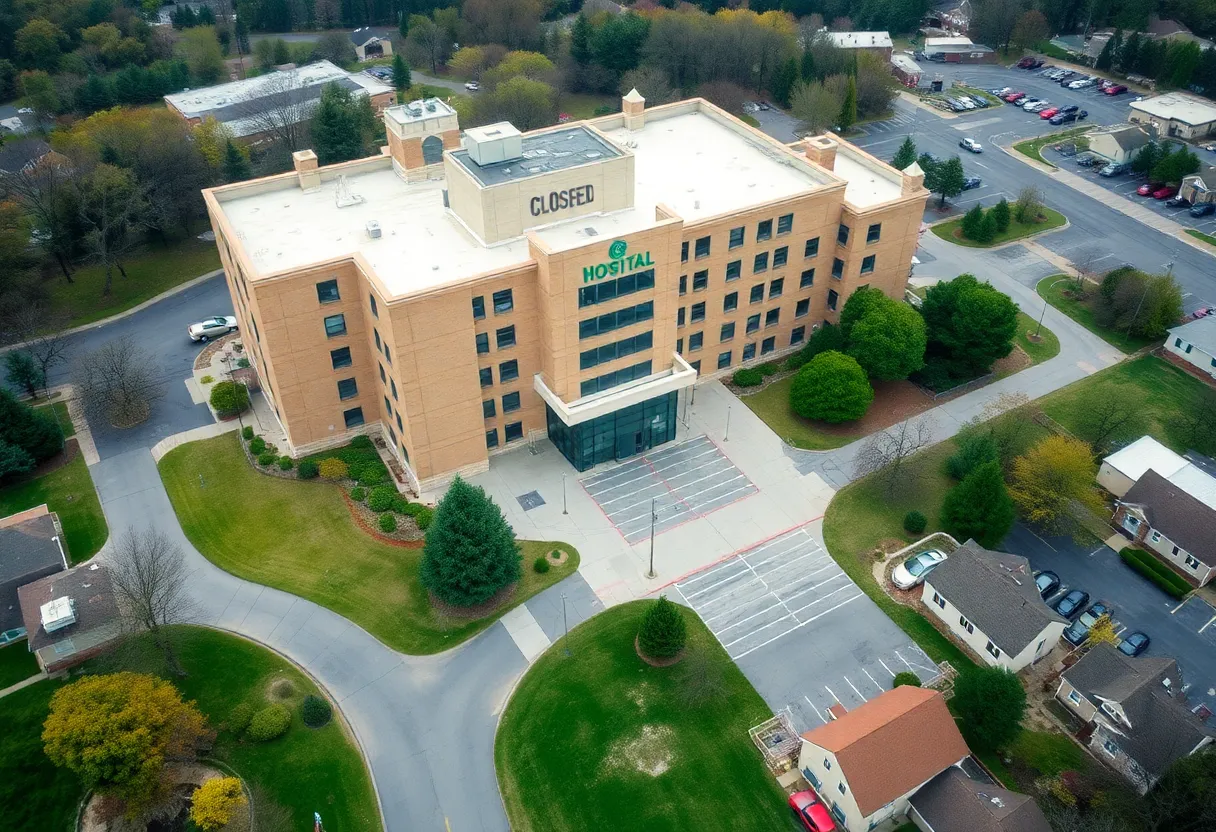News Summary
Pennsylvania is facing a healthcare crisis as multiple hospitals, particularly those reliant on Medicaid, have closed or downsized significantly. The recent closure of Crozer-Chester Medical Center raises concerns about healthcare access for low-income populations. With four hospitals closing in the past decade and potential federal Medicaid cuts looming, legislators are calling for improved reimbursement rates to address the ongoing financial challenges in the healthcare sector. The situation highlights the need for urgent reforms to support vulnerable communities relying on Medicaid for care.
Pennsylvania is facing a significant healthcare crisis as six out of the ten hospitals in Southeastern Pennsylvania with the highest percentage of Medicaid patients in 2015 have either closed or downsized. The most recent casualty, Crozer-Chester Medical Center in Upland, has been described by the governor as a critical development in the ongoing healthcare struggles within the state. The situation has prompted concerns regarding the future of healthcare access for low-income populations who rely on Medicaid.
In the past decade, four out of the ten hospitals that depended heavily on Medicaid have shut down, with notable closures including Delaware County Memorial Hospital in Drexel Hill in 2022, Hahnemann Hospital in Philadelphia in 2019, and St. Joseph’s Hospital in Philadelphia in 2016. Other facilities, such as Mercy Philadelphia in West Philadelphia and Suburban Community Hospital in East Norriton, have significantly reduced their services due to financial challenges associated with low reimbursement rates.
The ranking of hospitals focused on Medicaid dependency is based on data from the Pennsylvania Health Care Cost Containment Council, which highlights the precarious financial environment these institutions operate within. As the number of hospital closures has exceeded previous estimates over the last decade, understanding the implications of these changes is essential for the local healthcare landscape.
Concerns have been raised about potential cuts to Medicaid at the federal level that could further intensify the healthcare crisis in Pennsylvania. Governor Josh Shapiro has criticized any moves to limit Medicaid access, indicating that such actions would aggravate the situation in the commonwealth. In light of these developments, legislation is being proposed to require the Pennsylvania Attorney General to review more healthcare transactions to potentially block those deemed not in the public interest.
Senator Timothy Kearney is advocating for this proposed legislation, emphasizing the ongoing financial struggles facing hospitals due to inadequate reimbursement rates. Medicaid typically covers only about 82% of the cost of hospital care, leaving many facilities unable to sustain their operations financially. Einstein Medical Center Philadelphia, which has relied heavily on Medicaid, has reported difficulties in making competitive upgrades and providing necessary services.
Despite the crisis, some hospitals are managing to remain operational. Temple University Hospital, Mercy Fitzgerald Hospital in Darby, and Nazareth Hospital in Philadelphia have not undergone ownership changes, though they face their own challenges. Temple University Hospital has benefitted from significant state aid to help mitigate losses related to Medicaid and uninsured patients.
On the other hand, Trinity Health Mid-Atlantic, owners of Mercy Fitzgerald and Nazareth Hospitals, are consolidating certain services in response to financial pressures. Additionally, Prime Healthcare has announced plans to close the emergency department of Suburban Community Hospital, converting it into a 15-bed geriatric psychiatric facility, further illustrating the shifting landscape of healthcare services in the region.
The total number of hospital campus closures in the last decade has proven to be larger than previously reported, driven by the consolidation of multiple facilities under a single license. For instance, Crozer-Chester’s license encompassed Taylor Hospital and Springfield Hospital, both of which have also closed, though data on Medicaid reliance for those facilities was not available.
Legislators like Delaware County Democrat Lisa Borowski are advocating for improved Medicaid reimbursement rates to alleviate financial difficulties faced by hospitals. The current trend indicates a systematic issue within the hospital sector, driven by a lack of financial support and inadequate institutional investment, which continues to threaten the availability and quality of healthcare services for Pennsylvania’s low-income residents.
Deeper Dive: News & Info About This Topic
- Inquirer: Philadelphia Hospitals Closing
- Wikipedia: Medicaid
- Post-Gazette: Pennsylvania Hospitals
- Google Search: Pennsylvania Hospital Closures
- City and State PA: 2024 Trailblazers in Health Care
- Google Scholar: Hospital Closures Pennsylvania
- Fierce Healthcare: Highmark Health
- Encyclopedia Britannica: Hospitals in Pennsylvania
- Modern Healthcare: Highmark Health Plan Revenue
- Google News: Hospital Funding Issues Pennsylvania

Author: STAFF HERE PHILADELPHIA WRITER
The PHILADELPHIA STAFF WRITER represents the experienced team at HEREPhiladelphia.com, your go-to source for actionable local news and information in Philadelphia, Philadelphia County, and beyond. Specializing in "news you can use," we cover essential topics like product reviews for personal and business needs, local business directories, politics, real estate trends, neighborhood insights, and state news affecting the area—with deep expertise drawn from years of dedicated reporting and strong community input, including local press releases and business updates. We deliver top reporting on high-value events such as Mummers Parade, Philadelphia Flower Show, and Thanksgiving Day Parade. Our coverage extends to key organizations like the Greater Philadelphia Chamber of Commerce and United Way of Greater Philadelphia, plus leading businesses in telecommunications, food services, and healthcare that power the local economy such as Comcast, Aramark, and Children's Hospital of Philadelphia. As part of the broader HERE network, we provide comprehensive, credible insights into Pennsylvania's dynamic landscape.





